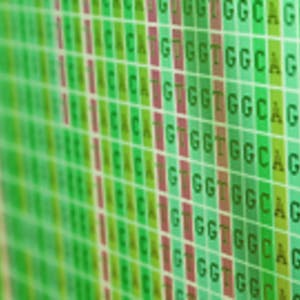The past 15 years have been exciting ones in plant biology. Hundreds of plant genomes have been sequenced, RNA-seq has enabled transcriptome-wide expression profiling, and a proliferation of “-seq”-based methods has permitted protein-protein and protein-DNA interactions to be determined cheaply and in a high-throughput manner. These data sets in turn allow us to generate hypotheses at the click of a mouse. For instance, knowing where and when a gene is expressed can help us narrow down the phenotypic search space when we don’t see a phenotype in a gene mutant under “normal” growth conditions. Coexpression analyses and association networks can provide high-quality candidate genes involved in a biological process of interest. Using Gene Ontology enrichment analysis and pathway visualization tools can help us make sense of our own ‘omics experiments and answer the question “what processes/pathways are being perturbed in our mutant of interest?“Structure: each of the 6 week hands-on modules consists of a ~2 minute intro, a ~20 minute theory mini-lecture, a 1.5 hour hands-on lab, an optional ~20 minute lab discussion if experiencing difficulties with lab, and a ~2 minute summary.
Tools covered [Material updated in June 2022]:
Module 1: GENOMIC DBs / PRECOMPUTED GENE TREES / PROTEIN TOOLS. Araport, TAIR, Gramene, EnsemblPlants Compara, PLAZA; SUBA4 and Cell eFP Browser, 1001 Genomes Browser
Module 2: EXPRESSION TOOLS. eFP Browser / eFP-Seq Browser, Araport, Genevestigator, TravaDB, NCBI Genome Data Viewer for exploring RNA-seq data for many plant species, MPSS database for small RNAs
Module 3: COEXPRESSION TOOLS. ATTED II, Expression Angler, AraNet, AtCAST2
Module 4: PROMOTER ANALYSIS. Cistome, MEME, ePlant
Module 5: GO ENRICHMENT ANALYSIS AND PATHWAY VIZUALIZATION. AgriGO, AmiGO, Classification SuperViewer, TAIR, g:profiler, AraCyc, MapMan (optional: Plant Reactome)
Module 6: NETWORK EXPLORATION. Arabidopsis Interactions Viewer 2, ePlant, TF2Network, Virtual Plant, GeneMANIA
None
Syllabus
Syllabus - What you will learn from this course
Week 1
Plant Genomic Databases, and useful sites for info about proteins
Week 2
Expression Analysis
Week 3
Coexpression Tools
Week 4
Sectional Quiz 1
Week 5
Promoter Analysis
Week 6
Functional Classification and Pathway Vizualization
Week 7
Network Exploration (PPIs, PDIs, GRNs)
Week 8
Sectional Quiz 2 and Final Assignment
FAQ
When will I have access to the lectures and assignments?
Access to lectures and assignments depends on your type of enrollment. If you take a course in audit mode, you will be able to see most course materials for free. To access graded assignments and to earn a Certificate, you will need to purchase the Certificate experience, during or after your audit. If you don't see the audit option:
What will I get if I subscribe to this Specialization?
When you enroll in the course, you get access to all of the courses in the Specialization, and you earn a certificate when you complete the work. Your electronic Certificate will be added to your Accomplishments page - from there, you can print your Certificate or add it to your LinkedIn profile. If you only want to read and view the course content, you can audit the course for free.
Is financial aid available?
Yes. In select learning programs, you can apply for financial aid or a scholarship if you can’t afford the enrollment fee. If fin aid or scholarship is available for your learning program selection, you’ll find a link to apply on the description page.
Reviews
Professor Provart is very good and the labs taught us in simple and direct instructions how to perform a wide range of analysis regarding Plant Bioinformatics.
Thank you very much Dr. Provart for a wonderful lectures and lab experiments!
This course is desingned very well. I have learned a lot about bioinformatic analysis of plants. I recommend this course.
Very nice and informative course. I would love to interact with you personally and learn more.
